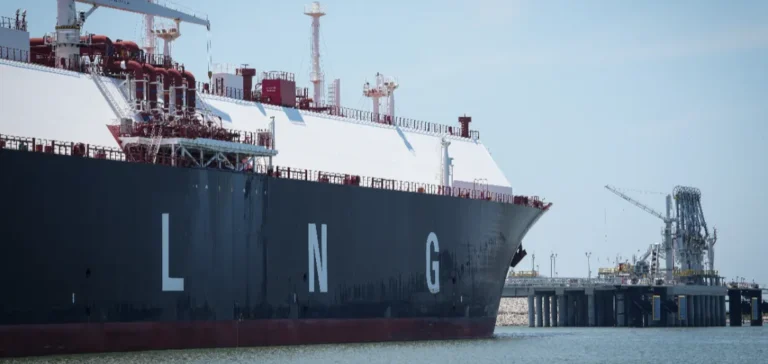The US administration has dropped its proposal to suspend liquefied natural gas (LNG) export licences for operators failing to comply with the requirement to use US-flagged vessels. This decision removes the most punitive measure from the plan initially introduced in March, which aimed to reduce reliance on foreign maritime services, particularly Chinese, while reviving the domestic shipbuilding industry.
Ongoing concerns over technical feasibility
Despite this partial rollback, the LNG sector remains concerned. The Center for Liquefied Natural Gas, the industry’s leading trade group, stated that the timelines imposed are incompatible with the current industrial capacities of US shipyards. “This is more problematic than the pause,” said Charlie Riedl, executive director of the centre, during a forum in New Orleans.
The schedule announced by the Office of the United States Trade Representative (USTR) requires 1% of LNG exports to be shipped on vessels flagged and operated from the US starting in 2028. In 2029, the same share must also be carried on ships built in the United States. The threshold will increase to 2% by April 2031, reaching up to 15% in 2047.
Shipbuilding capacity seen as insufficient
According to Riedl, there are currently no facilities capable of building the required ships within the given timeframe. Major US shipyards are already overwhelmed with military orders, facing significant delays. “We would not be able to get an LNG boat built in time to comply with this even at the long end of the runway,” he added.
The maritime restrictions would affect projects already in operation, unlike the export permit moratorium, lifted this year, which targeted only projects under development. Rick Smead, managing director of advisory services at RBN Energy, noted the conflicting objectives between boosting LNG exports and restricting foreign-built vessels.
Trade tensions in the background
These requirements are part of a broader investigation under Section 301 of the Trade Act of 1974, targeting China’s ambitions in the maritime and logistics sectors. In this context, the US imposed fees in April on Chinese operators, prompting retaliatory measures including port fees on US-linked vessels.
The USTR also proposed a partial exemption for certain ethane and liquefied petroleum gas (LPG) carriers operating under long-term charters. The agency states it is closely monitoring the availability of compliant vessels, while committing to support the competitiveness of the US LNG sector and the expansion of its shipbuilding industry.






















